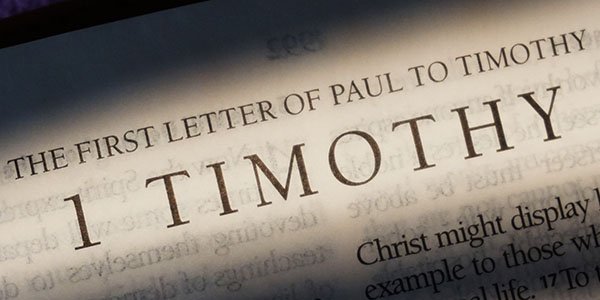What are the Differences Between the Baptism of John and Apostles?
From time to time we interact with questions. If you have a question you’d like answered, send it to redeemingfamily@gmail.com.
Are there differences between the baptism of John and the baptism of the apostles in the New Testament?
This is a terrific question and for me made all the difference in helping grow and solidify my confidence and conviction regarding a covenantal understanding of baptism, instead of an exclusive credo practice of baptism.
If you read Acts 18:24-19:7 you will note a marked distinction between the baptism of John and the baptism of the Apostles. We see this both in Apollo's life and among those in Ephesus that Paul served. The New Testament makes plain that John’s baptism is not the same as the apostolic baptism:
18:24 Meanwhile a Jew named Apollos, a native of Alexandria, came to Ephesus. He was a learned man, with a thorough knowledge of the Scriptures. 25 He had been instructed in the way of the Lord, and he spoke with great fervor and taught about Jesus accurately, though he knew only the baptism of John. 26 He began to speak boldly in the synagogue. When Priscilla and Aquila heard him, they invited him to their home and explained to him the way of God more adequately. 27 When Apollos wanted to go to Achaia, the brothers and sisters encouraged him and wrote to the disciples there to welcome him. When he arrived, he was a great help to those who by grace had believed. 28 For he vigorously refuted his Jewish opponents in public debate, proving from the Scriptures that Jesus was the Messiah. 19:1 While Apollos was at Corinth, Paul took the road through the interior and arrived at Ephesus. There he found some disciples 2 and asked them, “Did you receive the Holy Spirit when you believed?” They answered, “No, we have not even heard that there is a Holy Spirit.” 3 So Paul asked, “Then what baptism did you receive?” “John’s baptism,” they replied. 4 Paul said, “John’s baptism was a baptism of repentance. He told the people to believe in the one coming after him, that is, in Jesus.” 5 On hearing this, they were baptized in the name of the Lord Jesus. 6 When Paul placed his hands on them, the Holy Spirit came on them, and they spoke in tongues and prophesied. 7 There were about twelve men in all.
Once we see that John's baptism is different from the rest of Apostolic New Testament baptisms (enough to make Apollos do a double take, and the believers in Ephesus also do a double take) it ought to make us pause to clarify some questions: What was John's baptism? What were the origins? Why and how was the baptism instructed by Jesus different from John's? Were there differences in mode, or age, or do the texts relating to these things speak of spiritual dynamics rather than ceremonial/procedural differences?
Some passages to consider on these topics (I encourage you to read a few verses before and after these specific verses mentioned).
Mark 1:4, Mark 11:30, Luke 20:4, Acts 1:22, Acts 10:37, Acts 13:24, and the elongated passage already mentioned Acts 18:24-19:7.
I won't tell you what your conclusions should be. But I can share with you that in studying and praying on these things, I grew in confidence and conviction that baptism is a sign and seal of the covenant of grace, with a meaning, requirement, lesson, and accomplishment of something quite distinct from John's baptism of repentance. Once that distinction is seen (biblically), I've noticed in myself and in some from Baptists background a marked change in belief and conversation about the sacrament, the active parties involved in baptism, and God's display of grace through this sacrament.
Prior to studying these things, I had thought in a much more responsive manner, almost (not quite, but nearly) synergistically, that we responded to God in baptism because of our spiritual awakening. Now, while our response is indeed a part of the process of baptism, what is occurring in baptism is not primarily my public acceptance of Christ, nor my witness of the resurrection (although those may be aspects of it, it is the Lord's table that speaks more explicitly in the scriptures to the regular testimony of the Lord's resurrection and return). What is going on in baptism is God's covenant promises continuing from one generation to the next, that all who call on the name of the Lord will be saved, that includes grown adults via creedal, visible, observable expressions of faith, and infants (and the physically and mentally handicapped) who cannot make visible profession. Baptism is a clear picture of the monergistic movement of God, that regeneration is wholly from God, and even our response to the gospel is a grace from Him.
I’ll encourage you with these last words, don't take any of my explanation at face value. Read the scriptures, and wrestle with the New Testament as it speaks of John's baptism and the Apostle’s baptism after Jesus’ pattern. You'll no doubt have your own questions and conclusions, and I hope they cause you to continue to grow in your faith, love, and hope in the Lord!


